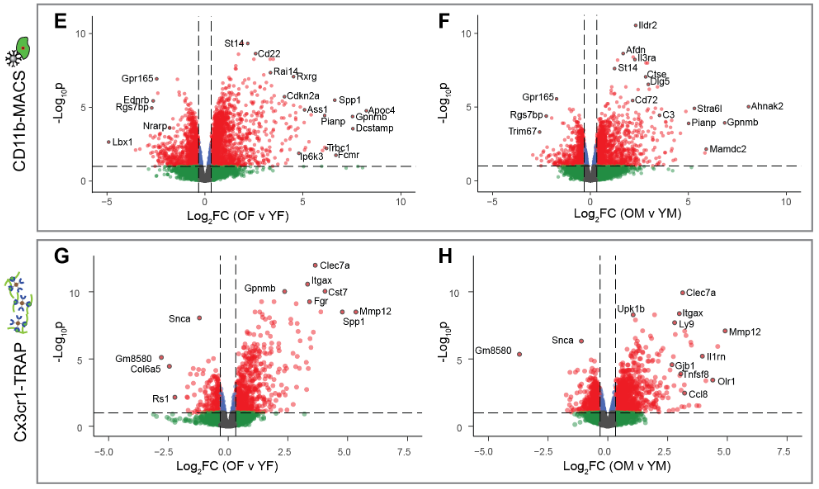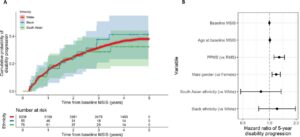
Sarah A. Ocañas, et al. – University of Oklahoma Health Sciences Center.
“Microglial MHC-I induction with aging and Alzheimer’s is conserved in mouse models and humans.”
Collyn M. Kellogg, et al. – University of Oklahoma Health Sciences Center.
Now published in GeroScience.
This pair of studies from the lab of Willard Freeman examines age-related changes in hippocampal microglia.
In Ocaña et al, the authors found that female mice show greater levels of microglial senescence during normal aging than male mice, as well as markers for disease-associated microglial phenotypes. These could contribute to sex differences in AD prevalence.
Kellogg et al found that age-related increases in MHC-I expression are, in hippocampus, largely due to increased microglial expression. This increase is also observed in tissue from AD patients and mouse models of AD, raising the possibility of increased recruitment of infiltrating T-cells.





